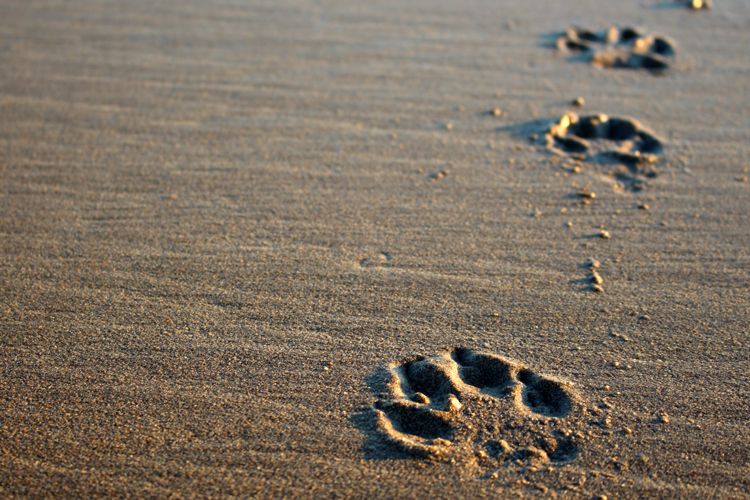How To Protect Important Documents From Natural Disasters
With a little preparation your most essential documents can be saved from ruin.

Disaster movies are exciting and entertaining, but it’s hard not to turn on the news and feel like we’re living in one. According to the WMO (World Meteorological Organization), weather, climate, or water related disasters have increased by a factor of five over the past 50 years. Scientists attribute this to various factors including climate change and the increased ability to report disasters. The United States has seen wildfires, droughts, floods, and powerful storms every year. Unfortunately these devastating events are also occurring worldwide.
While it can seem all doom and gloom there are some silver linings, like technology allowing for advance notice and early warning, which has helped reduce the amount of deaths from natural disasters over the past century. While saving lives is most important, natural disasters are also huge economic disasters and annually cost billions of dollars.
Early warning systems help us make better decisions on how to safeguard our lives and possessions and sometimes you might get a few days' warning. Other times it’s a knock on your door. With the threat of natural disasters increasing we need to be sure we are prepared to evacuate or shelter in place. Gathering emergency supplies is essential – but we also need to consider how we can protect our essential documents.
The good news about the world becoming so digitally focused is that much of your life is accessible through any phone or computer, so you don’t need to store boxes and boxes of paper. You should only focus on the vital documents that still need to be on paper. With that in mind, here’s how to get prepared.
Make Copies Of These Important Documents
Since you may not know if a natural disaster requires a quick evacuation, you should prepare now in case you don’t have time during an actual event. Brooklyn South Cert operates in conjunction with New York City Emergency Management and suggests all households be prepared for a disaster with a Go Bag. CERT recommends that your Go Bag should include copies of all your important documents and the following:
- Insurance Cards
- Birth Certificates
- Photo IDs
- Property Deeds
- Mortgage
- Car/Vehicle Titles
- Prescriptions
- Credit Cards
- ATM Cards
- Important Phone Numbers
- Photos of yourself and family/loved ones in case you need help reconnecting
Some of this information is probably already in your wallet/purse or on your phone. You may have even gone the extra mile and stored it in a digital format as well. (Perhaps your Everplan… good work!) Take note of the items that might be best to have copies of just in case. There’s a chance the power could be out (no Wifi) or your phone could die (don't forget to include charging cables and a power brick to that Go Bag).
Notice how we didn’t focus on legal documents like a Power Of Attorney, Will, or Medical Directives? That’s because in an emergency they’re not as important as IDs and medication. You’re not dead, you’re displaced, and hopefully you’ll make it home again sometime soon. Stay positive! (Plus, we cover that stuff below.)
Buy A Fireproof Safe
It’s a great idea to invest in a fireproof safe inside your home to keep your important documents (like all the legal stuff we just mentioned). In addition to important documents, people often store valuables like pictures, jewelry, or other items worth protecting.
Pro-Tip: Avoid moisture or unexpected mold in your safe by adding moisture absorbers like desiccant packs or calcium chloride packets. It appears this is an issue with many airtight safes so it’s smart to set reminders on your calendar to check the safe every few months to be, um, safe.
Store Important Documents Out Of Flooding Range
This may seem fairly obvious, but it’s proactive to store your documents or your safe out of harm's way of water damage. This means it’s probably not a great idea to keep documents in the basement. Ideally you’ll store documents above ground in a dry area of your home that isn’t easily submerged in water.
Make Digital Copies And Store Them In The Cloud
Even if you require original documents it’s wise to keep high quality scanned digital copies of your most important documents, also known as digitizing. For cyber security safety you can save them on an encrypted flash drive or upload them to a secure digital vault (not to toot our own horn again, but this is why Everplans was created and why so much time and effort is spent on security.)
Store Important Documents With An Attorney, Other Professional, Or Someone You Trust
If you created any of your documents with an attorney they can keep copies on file. This way you only have to share the attorney’s contact information with anyone who might need them one day.
If you use a financial professional (advisor, accountant) they might be able to store this information as well. If you have any medical directives, a doctor’s office or medical institution can have copies of those.
It doesn’t only have to be a professional, you can give copies to the person you named as guardian of your children, your executor, or someone you implicitly trust that doesn’t live on the same block. For example, if you have an adult child that lives an hour or more away you can store copies with them. Perhaps they even have a fireproof safe.
See how this works? Rather than worrying about the documents, you only need to share the contact info of the person who has copies of those documents.
Use A Safe Deposit Box
We didn’t speak too highly of these in our book In Case You Get Hit By A Bus, but it’s not their fault. These bank-based boxes, which are used to protect valuables, are becoming less relevant due to cost, availability, and accessibility. While it might seem smart to keep estate planning documents inside, it can prevent your family from accessing them during an emergency or after a death. If you go this route you need to name someone you trust as an authorized user (and give them a key or code), otherwise the bank will require a court order, which can be time consuming and extremely frustrating.
Safe Deposit Boxes are cool in spy movies, but in real life it’s often best to get a home safe, Ziploc bags, digital backups, and a secondary location that doesn’t keep banking hours.
- All The Information You Need To Share About...It’s incredibly sad to think of our pets without us, but here’s your chance...Read more
- Estate Planning For Your PetsAmerica is approaching a belly rub crisis. Or, in the case of cats, that...Read more
- What To Say To Someone Grieving The Loss Of A PetFor most people, it’s not just a dog, cat, or other domesticated animal....Read more
- Planuary: Organizing For The New YearIf the turn of a new year inspires you to finally get your life in order, we...Read more



